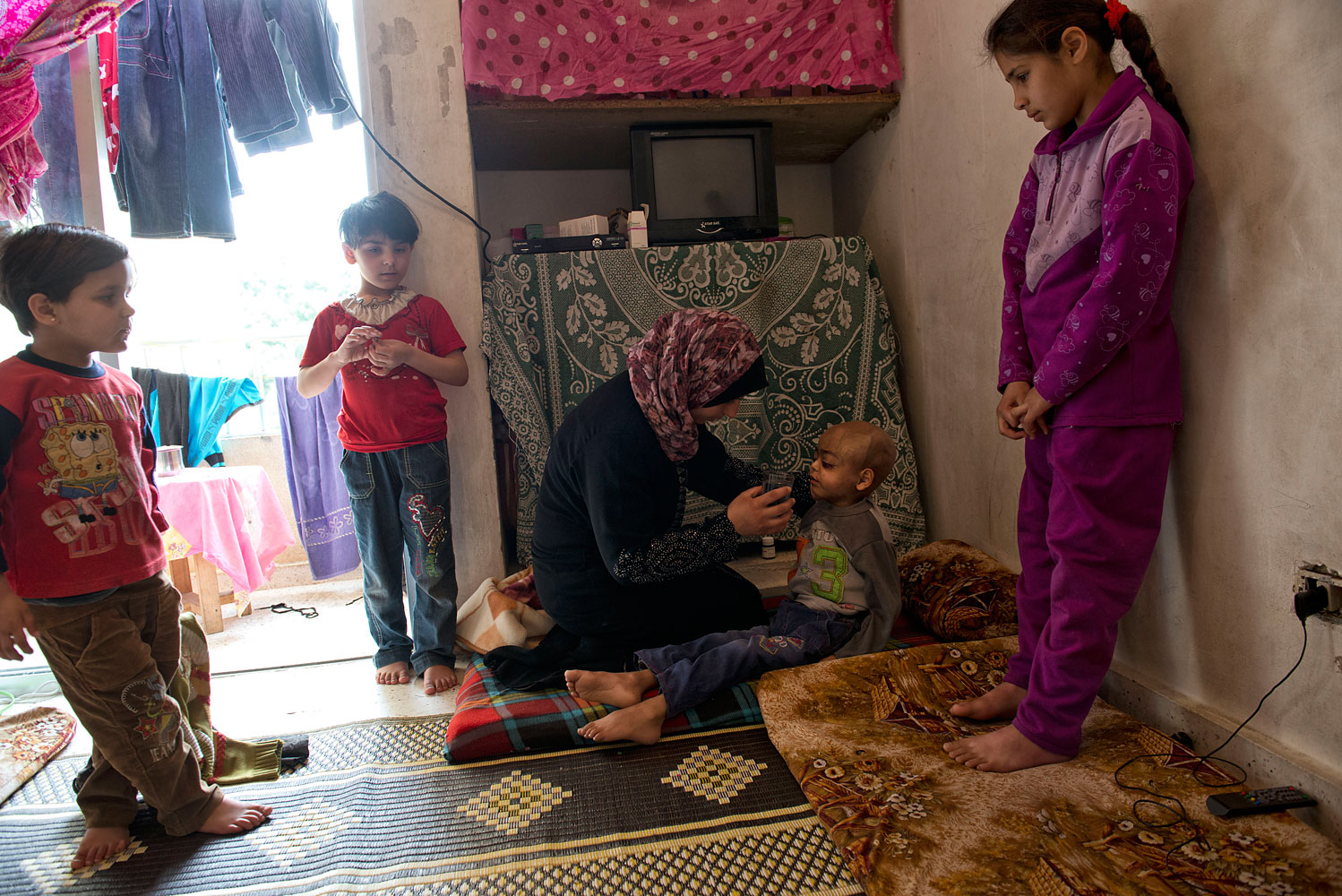
On March 13, TIME covered the heartbreaking story of a four-year-old Syrian boy caught at the tragic intersection of war and cancer. Last year, Zacharia Delly had been diagnosed with neuroblastoma, a common childhood cancer, in his hometown of Homs. A difficult but treatable disease, neuroblastoma is best tackled with aggressive chemotherapy, and Zacharia’s doctor prescribed eight sessions, spaced two weeks apart, in an attempt to catch the cancer before it spread too far.
But the hospital in Homs had been destroyed in the fighting, like some 60% of the country’s medical facilities, according to a new report by Save the Children, and his parents were forced to take him to Damascus for treatment, a two-hour bus ride away. As the fighting intensified the road became impassable, and Zacharia missed his second session. Chemotherapy is not something that can be put on hold. If a session is missed, the cancer comes back even stronger. By the time his mother, Feryal Delly, was able to get him to Damascus, Zacharia was 20 days late. The doctor urged Zacharia’s family to move to Damascus to ensure regular treatments, but with no money, no jobs, and five children to take care of, it was impossible.
Zacharia returned to Homs, and the road to Damascus closed again. Desperate to make the next appointment on time, Delly packed up her family for Lebanon, where she hoped to find better hospitals. The move across the border took several days, and by the time they arrived, in December, it was already too late. The cancer took Zacharia’s eyes, his ability to walk, and it moved to his brain. The doctors in Lebanon could do little more than ease his pain.
On March 17, Zacharia died, one small struggle lost among the hundreds of thousands of lives taken by a war that shows no mercy, no logic and has no end in sight.
More Must-Reads From TIME
- The 100 Most Influential People of 2024
- Coco Gauff Is Playing for Herself Now
- Scenes From Pro-Palestinian Encampments Across U.S. Universities
- 6 Compliments That Land Every Time
- If You're Dating Right Now , You're Brave: Column
- The AI That Could Heal a Divided Internet
- Fallout Is a Brilliant Model for the Future of Video Game Adaptations
- Want Weekly Recs on What to Watch, Read, and More? Sign Up for Worth Your Time
Contact us at letters@time.com